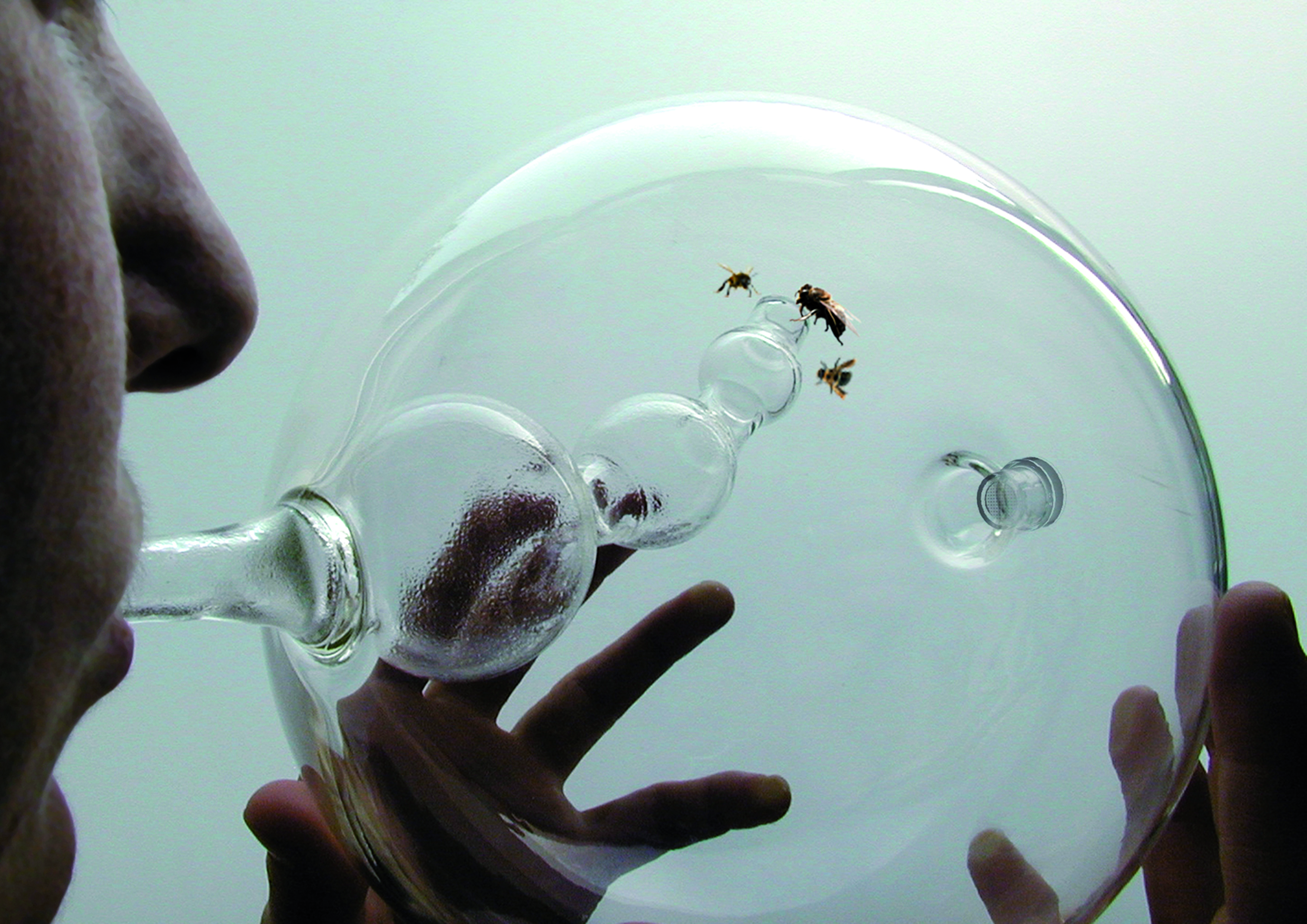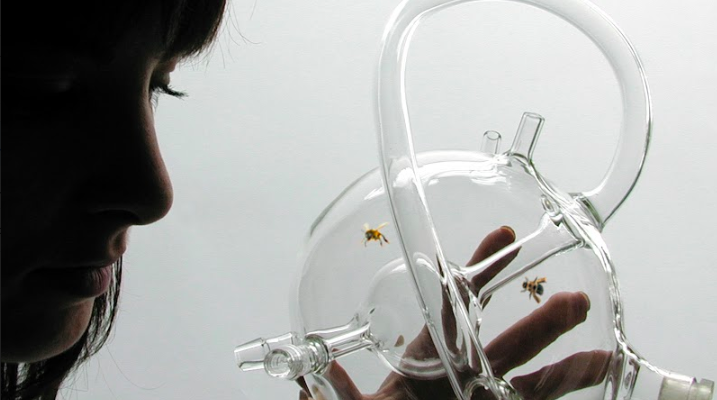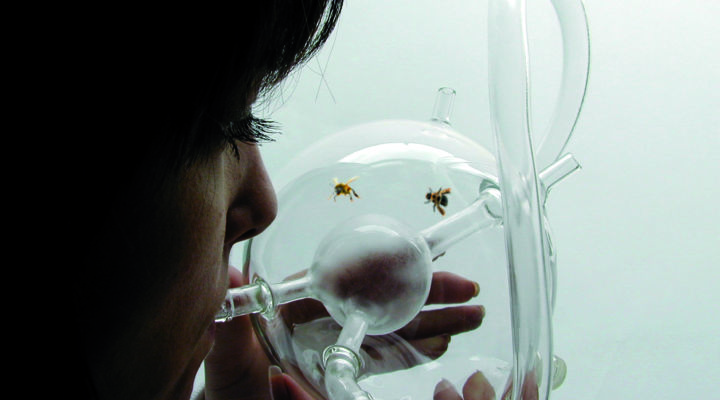EDITOR’S NOTE: May 20th is World Bee Day, a date designated to raise awareness of the importance of bees and other pollinators, the threats they face because of human activity, and their contribution to sustainable development. As the UN writes, “not only do bees contribute directly to food security, but they are key to conserving biodiversity (…). They also serve as sentinels for emergent environmental risks, signalling the health of local ecosystems.” Broken Nature partakes in the celebration of these immensely fascinating creatures with a focus on BEE’S, a project by Susana Soares featured in the XXII Triennale di Milano, open through September 1.

Based on research into the extraordinarily sensitive olfactory system of honeybees, which are able to detect pheromones and toxins, Susana Soares has devised a series of three alternative diagnosis tools that use trained bees to detect diseases, perform health checkups, and monitor fertility cycles. Each object has a certain number of chambers related to the possible diagnosis—for instance two (yes/no) for pregnancy, three for fertility cycles. Bees trained to detect a specific marker odor will go into the corresponding chamber if they sense it on the person’s breath. (Training the bees is fairly straightforward, using a reward system.) The project looks to how humans might build new partnerships with other living organisms that share their same environments.






